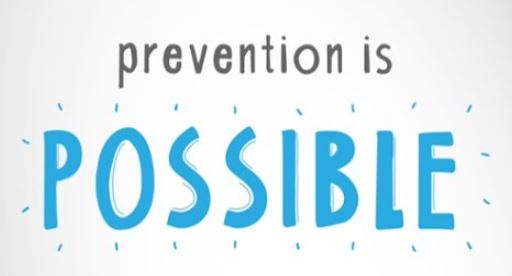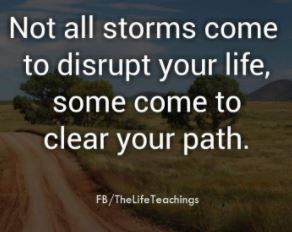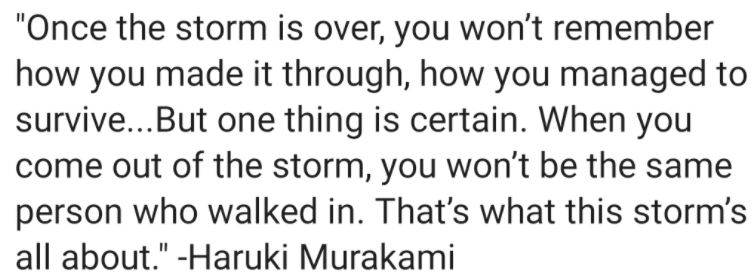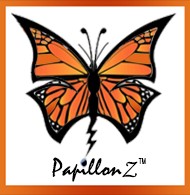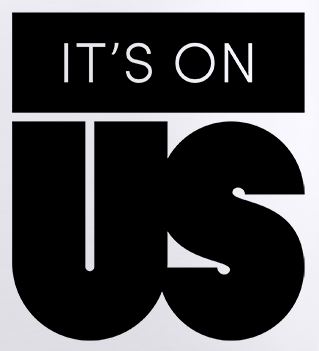Bystander Intervention
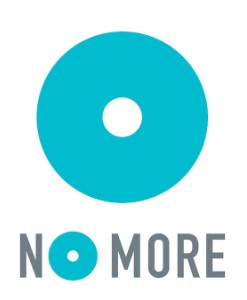
“With more than 1,400 allied organizations and over 40 state, local, and international chapters, NO MORE sparks grassroots activism, encouraging everyone—women and men, youth and adults, from all walks of life—to be part of the solution.” Click Here to learn more about NO MORE, and here How to Help Survivors
The NO MORE Silence, Speak Your Truth platform provides a safe and supportive space for people impacted by domestic violence to share their experiences, learn from other survivors, and connect to resources.
“Your story is personal and unique, but sharing it can be a healing experience for you and others.
Remember, healing is not linear and is different for everyone. It is important to stay patient with ourselves when setbacks occur in our process and forgive yourself for everything that may go wrong along the way.”
“NO MORE is a groundbreaking, global initiative comprised of the largest coalition of nonprofits, corporations, government agencies, media, schools, and individuals addressing domestic and sexual violence. We are committed to engaging, reaching, and working with people from diverse communities.” Click Here to GET HELP – Directory of domestic & sexual violence helplines & services ~ 200+ LOCATIONS AROUND THE WORLD!
OUR MISSION
Educational Tools
“The goal is for these resources to be easy to use, free, and easily adaptable to different campus communities. It’s On Us has held individual interviews and focus groups with students and staff to collect information on the gaps that exist in sexual violence prevention educational materials around the country today. We have developed peer-to-peer resources that address the existing needs students identified. Each educational tool was developed based on direct feedback and needs addressed by students and drawn from the most up-to-date research and best-practices, which are cited within each document.
“Choose a topic from the list below for resources that might help you with your campus organizing or programming. “
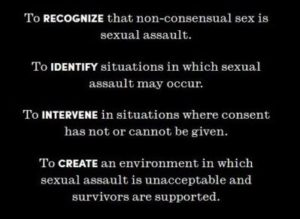

The foundation launched in October 2013 with the introduction of its’ inaugural program, The Aspire Initiative, a domestic violence program which aims to reduce the level of intimate relationship violence in the US and instill the importance of bystander responsibility.
The initiative includes a potentially life-saving FREE smartphone app, Aspire News, available in the iTunes store, through Google Play and at https://www.whengeorgiasmiled.org, that allows the user to create pre-written text or voice messages to be sent to designated numbers (911 or other chosen contacts) with just the tap of a button.
Aspire News has already had more than 160,000 downloads and was recognized on Capitol Hill by the National Health Collaborative on Violence and Abuse as one of the two apps in 2014 most beneficial in the fight to end domestic violence.
Robin recently launched the #iAspire Campus Challenge to raise awareness of the issue of sexual assault on university campuses across the country and highlight student initiatives to prevent domestic violence.
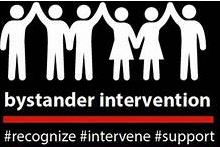
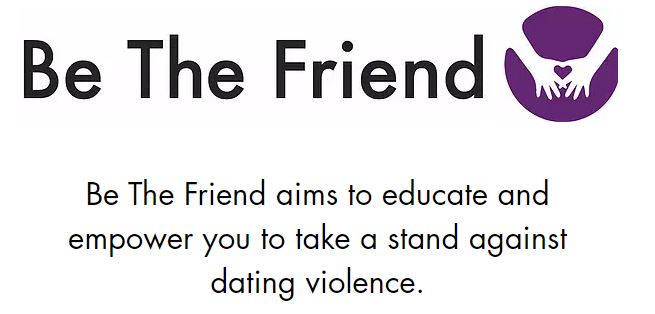
“Be The Friend aims to educate and empower you to take a stand against dating violence.”

That Girl At The Bar | #HowWillWeRespond | Women Safety | Bystander Intervention | Short Film | 2017
From RAINN
https://www.rainn.org/articles/your-role-preventing-sexual-assault
Your Role in Preventing Sexual Assault
The only person responsible for committing sexual assault is a perpetrator, but all of us have the ability to look out for each other’s safety. Whether it’s giving someone a safe ride home from a party or directly confronting a person who is engaging in threatening behavior, anyone can help prevent sexual violence.
What is a bystander?
A bystander is a person who is present when an event takes place but isn’t directly involved. Bystanders might be present when sexual assault or abuse occurs—or they could witness the circumstances that lead up to these crimes.
On average there are over 293,000 victims (age 12 or older) of rape and sexual assault each year in the U.S. The majority of these crimes are committed by someone the victim knows. Given these circumstances, it’s important to recognize the role bystanders can play in preventing crimes like sexual assault.
What can I do to prevent sexual assault?
You may have heard the term “bystander intervention” to describe a situation where someone who isn’t directly involved steps in to change the outcome. Stepping in may give the person you’re concerned about a chance to get to a safe place or leave the situation. You don’t have to be a hero or even stand out from the crowd to make a big difference in someone’s life. Take steps to protect someone who may be at risk in a way that fits your comfort level.
Whether you’re taking home a friend who has had too much to drink, explaining that a rape joke isn’t funny, or getting security involved when someone is behaving aggressively, choosing to step in can affect the way those around you think about and respond to sexual violence.
Why don’t people help more often?
It’s not always easy to step in, even if you know it’s the right thing to do. Some common reasons bystanders remain on the sidelines include:
“I don’t know what to do or what to say.”
“I don’t want to cause a scene.”
“It’s not my business.”
“I don’t want my friend to be mad at me.”
“I’m sure someone else will step in.”
It’s okay to have these thoughts, but it’s important to realize that your actions can have a big impact. In many situations, bystanders have the opportunity to prevent crimes like sexual assault from happening in the first place.
Your actions matter
Whether or not you were able to change the outcome of the situation, by stepping in you are helping change the way people think about their roles in preventing sexual violence. If you suspect that someone you know has been sexually assaulted, there are steps you can take to support that person.
- Learn more about steps you can take to prevent a sexual assault and show you C.A.R.E.
- Identify ways to help someone you care about.
- Learn more about how to respond when someone discloses sexual assault or abuse.
Want to do more for sexual assault prevention on your campus? Rate your college’s prevention program and make your voice heard.
To speak with someone who is trained to help, call the National Sexual Assault Hotline at 800.656.HOPE (4673) or chat online at online.rainn.org.
Each month, RAINN highlights a member of its National Leadership Council. The NLC is a group of dedicated individuals who have shown their commitment to RAINN’s mission of supporting survivors and ending sexual violence.
Whitney Wolfe Herd is the founder and CEO of Bumble, which puts women in control of the online dating experience, and a member of RAINN’s National Leadership Council. She recently became the youngest woman to take a company public and is a passionate advocate for women leaders in business.
Bumble CEO on Supporting Survivors and Creating Safer Dating Experiences
Excerpt:
What do we need to do as a country to prevent sexual violence?”
We need to promote discussions of healthy relationships from a young age as well as empowering folks of all genders—including men and boys—to be allies. Bystander intervention should be taught on every college campus. We also need to uplift and support the crucial work of organizations like RAINN, who are not only doing the work on the ground to educate communities and provide support to victims, but urging lawmakers to take action to, for instance, end the rape kit backlog.”
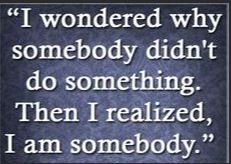
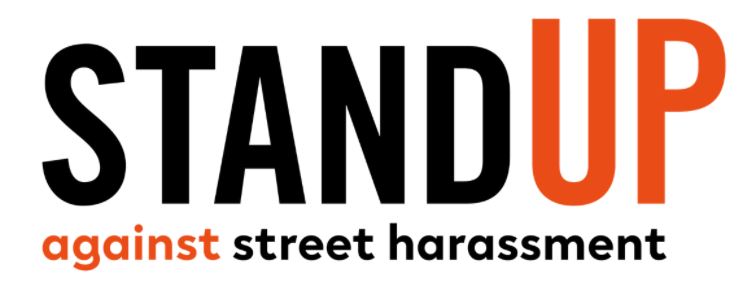
What does the Name “Stand Up Against Street Harassment” mean?
We wanted a name that inspired people to take action by standing up for each other. We want to be clear though — you don’t need to physically stand up to intervene or otherwise respond to harassment. Our methodology offers concrete ways that people can “stand up” regardless of their ability.
Source: Bystander Intervention Training: Stand Up Street Harassment | Hollaback (ihollaback.org)
What is Street Harassment and Who is Most Impacted?
Street harassment is sexual, gender-based, and bias-motivated harassment that takes place in public spaces like the street, the supermarket, and the social media we use every day. At its core is a power dynamic that constantly reminds historically subordinated groups of our vulnerability to assault in public spaces. Street harassment can happen to anyone, but disproportionately punishes women, girls, LGBTQ+ people, and other marginalized groups for being themselves in the world.
Street harassment is on a spectrum of gender-based violence. At one end of the spectrum, we have examples like inappropriate gestures, staring, whistling, following, and comments about your appearance or identity. As we move along the spectrum we start to see more severe forms of street harassment like public exposure and groping that are illegal. We include these behaviors in how we define street harassment because they are so common, pervasive, and rarely reported to authorities.
Street harassment is not about sexual gratification. It’s about power. If street harassment were about getting dates, it would be what author Marty Langelan calls a “spectacularly unsuccessful strategy.” Instead, street harassment is about “putting people in their place.”
At Hollaback!, we believe that what specifically counts as street harassment is determined by those who experience it. If you feel like you have been harassed, we believe you, we support you, and we invite you to share your story.
Source: Bystander Intervention Training: Stand Up Street Harassment | Hollaback (ihollaback.org)
How should I respond to Street Harassment?
Remember that it’s not your fault. And because it’s not your fault, it’s also not your responsibility to have the perfect response to street harassment. It’s their responsibility not to harass you.
While everyone is vulnerable to street harassment, research suggests that people who are aware of their surroundings, walk with confidence, and respond confidently to harassment are less vulnerable. Nevertheless, direct confrontations with people who harass can escalate, particularly if you are alone or in an unpopulated space. While it is each individual’s right to decide when, how, and whether to respond to street harassment, it’s important to prioritize your safety and wellbeing. To learn more about how to respond to harassment, check out the training on the Stand Up Against Street Harassment website.
If you want support, we’ve got your back. Read on to find out how to report harassment on Hollaback!’s website or via the app. If you’re thinking bigger picture, you can take action here and even start a Hollaback! site in your community.
Why Street Harassment Matters
Street harassment is an experience that devalues people of all sexual orientations, cultures and beliefs causing them to doubt their own experiences. When we watch harassment happen without intervening, it deepens the trauma for the person being harassed and shows the person doing the harassing that their behavior is OK. We want to disrupt this dynamic one intervention at a time.
When we see someone fall, or drop something in public, we instinctively help out. Why don’t we have the same reaction when we see someone being sexually harassed? We see it happen, but uncomfortably look away. We feel the urge to speak up, but stay cautiously silent. We all want to do something about it, but don’t know what. Or worse, we end up thinking it’s “not a big deal.” Not knowing what constitutes street harassment and what to do, limits our ability to take action, chipping away at the self-worth of men and women who suffer from street harassment.
Responding as a Bystander
All across the United States, girls, women, and transgender and gender non-binary individuals experience street harassment simply because of their gender identity or gender expression.
We all have a responsibility to do something when we see street harassment happening, but too often we freeze. We don’t know what to do. Bystander intervention gives us tools to intervene without compromising our own safety.
When we intervene, we don’t just reduce trauma for the person being street harassed. We also start to chip away at the culture that allows harassment to be so prevalent.
What’s worse than being targeted with harassment because of your race, sex, religion, color, gender, size, orientation, disability, age, or origin? Being targeted while surrounded by bystanders who see what is happening, but then do nothing.
How do you solve the problem of Street Harassment?
We believe that bystander intervention is a key intervention because it puts power in the hands of community members. We do not strategies that further criminalize harassment because we believe that the root street harassment is bias — not “a few bad apples.”
Historically we’ve seen that criminal law and punishment are disproportionately applied to people of color, low-income individuals, and trans and gender-nonconforming people. As advocates, we steer policymakers away from measures that would increase criminalization that predominantly affects these groups, and toward measures that engage communities in prevention. Replacing sexist oppression with racist oppression is not a proper hollaback. As we explained in a 2013 Huffington Post article:
Criminalizing verbal harassment and unwanted gestures is neither the final goal nor the ultimate solution to this problem and can, in fact, inadvertently work against the growth of an inclusive anti-harassment movement. The criminal justice system disproportionately targets and affects low-income communities and communities of color, as evidenced by policies such as New York City’s Stop and Frisk program and other degrading forms of racial profiling. Our objective is to address and shift cultural and social dialogues and attitudes of patriarchy that purport street harassment as simply the price you pay for being a woman or being LGBTQ. It is not to re-victimize men already discriminated against by the system.
We recommend policy solutions that expand bystander intervention education, improve research and reporting mechanisms, train police and transit officers, engage local businesses, and bring together diverse community members to facilitate “community safety audits.”
Source: Bystander Intervention Training: Stand Up Street Harassment | Hollaback (ihollaback.org)
At this moment in history, we are witnessing a spike in disrespect, harassment, and hate violence. As bystanders, we need to be especially vigilant and aware of what disrespect, harassment, and hate violence look like in order to be able to stand up and intervene at a time when people need it most.
You can make a choice to actively and visibly take a stand against harassment. The Five D’s are different methods you can use to support someone who’s being harassed, emphasize that harassment is not okay, and demonstrate to people in your life that they too have the power to make our communities and workplaces safer.
WHAT ARE HOLLABACK!’S 5D’S?
Hollaback!’s 5D’s are:
Distract, Delegate, Document, Delay, and Direct.
Hollaback! has been working on the issue of street harassment for 15 years, since 2005. We are a global leader in the movement to end harassment and strong advocates for an intersectional approach to addressing harassment. What started as a blog launched by youth to share personal experiences of harassment quickly turned into a global initiative.
How to Share Your Story of Harassment
Sharing your story of harassment is a powerful way to show others that street harassment is a problem. On a personal level, it can also help facilitate healing.
Here are three simple ways to do it:
- Download our free apps for iPhone and Android.
- Submit your story right here, on our website: ihollaback.org.
- Text your story to holla@ihollaback.org (put the email address where the numbers usually go) and we’ll receive it via email. You can even send a picture or the location of your harassment so we can map it.
Please note our anti-discrimination policy: We will not fight street harassment at the expense of oppressed people, and part of that is omitting irrelevant details about harassers’ race. We will not accept submissions that play up stereotypes based in racism. Same for classism, homophobia, transphobia, ableism, and the usage of any other identity signifier. Harassment comes from people in every facet of our cultures and every stratum of society. We ask that you refrain from referencing the attributes of your harasser, because this movement is about changing societal values, not pointing fingers. If you feel those details are important to your story, please make sure their relevance is explained clearly and constructively in your post.
Hollaback! works in communities to understand the problem, ignite public conversations, and develop innovative strategies that result in safe and welcoming environments for all.
We’re honored to be able to bring this work to scale in partnership with L’Oreal Paris through the Stand Up Against Street Harassment campaign.
Training is available!!
Learn more at Hollaback! Free Bystander Intervention Training (ihollaback.org)
Bystander Intervention Training: Stand Up Street Harassment | Hollaback (ihollaback.org);
Bystander Intervention Resources | Hollaback! End Harassment (ihollaback.org)
Teaching bystanders to intervene |
Jennifer McCary | TEDxGettysburgCollege

“Have you ever been concerned about a situation and wanted to help… but didn’t? YOU’RE NOT ALONE!”
“This situation is more common than you might think, and is known as the bystander effect. That’s why we created the Step UP! Bystander Intervention Program. Most problematic behaviors on college campuses involve bystanders.”
“A survey at three Universities revealed that students are encountering multiple situations where bystander intervention would be appropriate including, among other things, mental health and sexual assault/relationship violence.
“Almost 90% stated a problem could have been avoided with intervention and up to 85% of the students indicated they would like to learn skills to intervene.”
The goals of Step UP! are to:
- Raise awareness of helping behaviors
- Increase motivation to help
- Develop skills and confidence when responding to problems or concerns
- Ensure the safety and well-being of self and others

“Has there ever been a time when you felt, or even knew, something was wrong and wanted to help but didn’t? Don’t be a passive bystander anymore!”
_________________________
The Step UP! Program was developed by the University of Arizona C.A.T.S. Life Skills Program in partnership with the NCAA.
For additional information or if you are interested in various training offerings please contact:
Becky Bell, M.A., bell@email.arizona.edu or info@stepupprogram.org
NOTE: If you have emailed Becky before at bell@arizona.edu please update that to bell@email.arizona.edu
Step UP! Program on Facebook
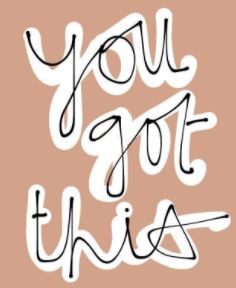
Sources
National Sexual Violence Resource Center Tip Sheet – Bystander Intervention Tips and Strategies
National Sexual Violence Resource Center Bystander Intervention Resources (Online Booklet)
RAINN Your Role in Preventing Sexual Assault
STEPUP! Program https://stepupprogram.org/
iHOLLABACK https://www.ihollaback.org/bystander-resources/; Bystander Intervention Resources | Hollaback! End Harassment (ihollaback.org)
Additional Resources
- Advocates and Shelters | WomensLaw.org (drop-down menu for your State)
- Click here to enter your zip code: Find Domestic Violence and Abuse Help, Information and Stats (domesticshelters.org)
Domestic Violence Support | The National Domestic Violence Hotline (thehotline.org)
- National Organizations | WomensLaw.org (listed by subject matter)
- Chat Rooms and Message Boards | WomensLaw.org
- VictimConnect (serves victims of crime in US (including assault, abuse, domestic violence, teen dating violence, trafficking, stalking, etc.), and make local referrals.
Mental Health Resources
